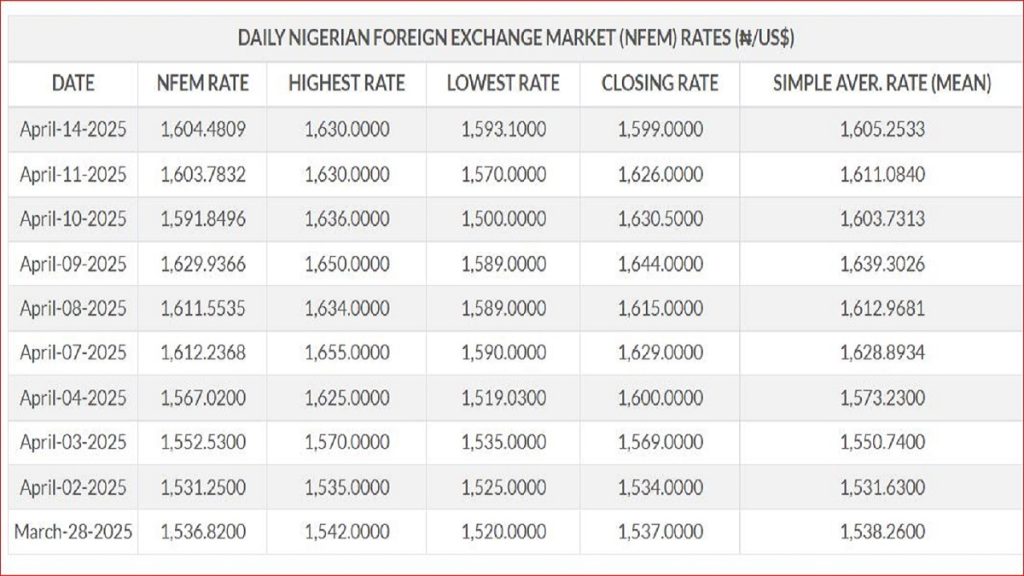The naira continued its slow descent against the U.S. dollar, cushioned by sustained foreign exchange (FX) interventions from the Central Bank of Nigeria (CBN). Exchange rates across both official and parallel markets are gradually inching toward convergence, hovering around the ₦1,600/$ mark despite intermittent fluctuations.
At the Nigerian Foreign Exchange Market (NFEM)—where the official rate is determined using a Volume Weighted Average—the naira weakened by ₦0.70, closing at ₦1,604.48/$ on Monday, compared to ₦1,603.78/$ recorded the previous day.
In a bid to stabilise the currency, the CBN sold $167 million last Friday, pushing its total FX sales for the week to $801.85 million. The Apex Bank further intervened with an additional $150 million, seeking to ease dollar scarcity and slow the naira’s slide, though this has continued to weigh on Nigeria’s external reserves.
Latest figures from the CBN show that gross external reserves have declined to $38 billion, raising concerns amid global oil market uncertainties that threaten Nigeria’s FX inflows.
AIICO Capital Limited noted in its report: “To provide support, the CBN intervened with a sale of $150 million at rates between ₦1,593.20/$ and ₦1,623/$. Throughout the session, the USD/NGN pair traded within a band of ₦1,593.10/$ to ₦1,630/$.”
Market analysts believe the naira will remain range-bound in the near term, with the CBN’s continued interventions helping to prevent steep depreciation. However, the pressure from foreign portfolio investor outflows and structural weaknesses in the economy continue to weigh heavily on the local currency.














